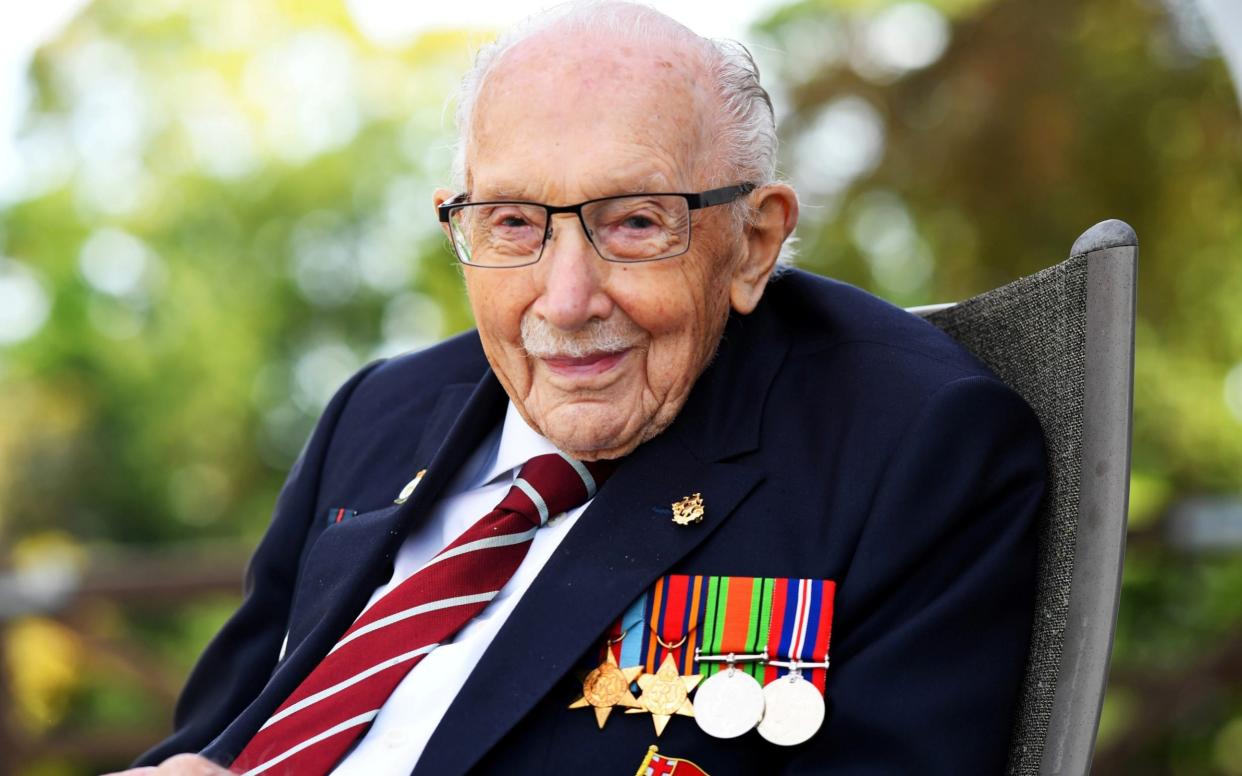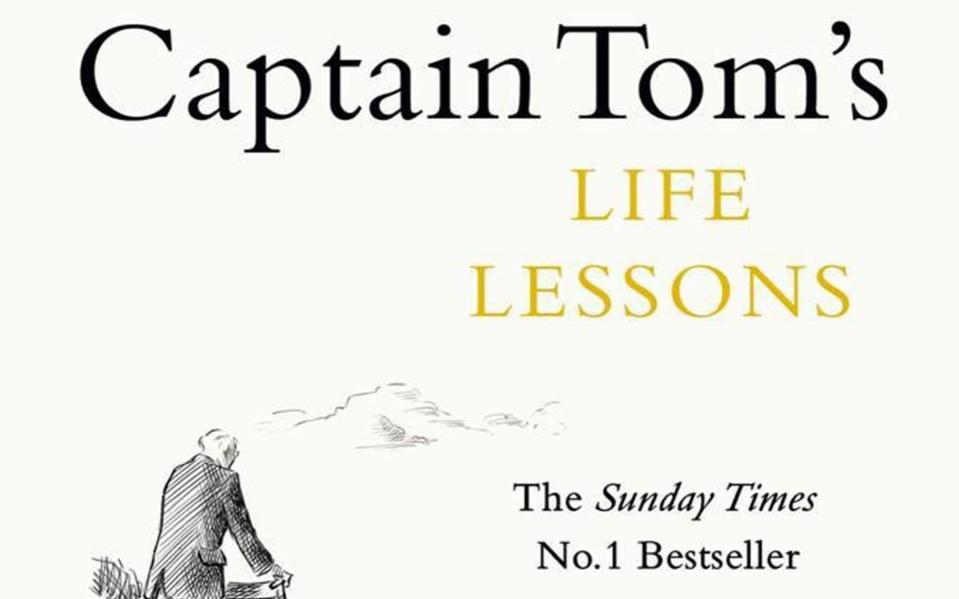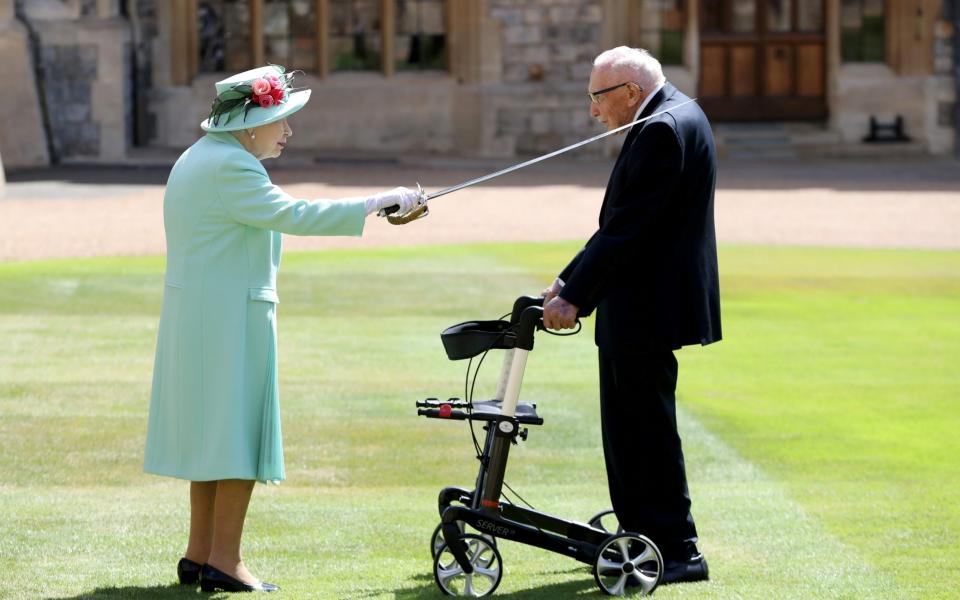Captain Tom's secrets to a long life? Patience, positivity, and porridge

A year ago a shocked and baffled Britain began to receive its first doses of the spirited optimism of the World War II veteran and charity fundraiser Captain Tom Moore – something that gave the nation’s well-being, in those otherwise bleak weeks of the first lockdown, a boost every bit as valuable as anything AstraZeneca has come up with.
There was something extraordinarily touching about this man, who had managed to live 100 years without having his belief in the decency of human beings or his faith in the future knocked out of him, assuring us that “tomorrow will be a good day”. Many of us were hoicked out of real dejection by the example of someone who had survived not just the Second World War but all the various setbacks and tragedies that befall anybody who lives a long life, and still had a smile on his face.
It is appropriate, then, that in the final months before his death in February, Captain Tom was distilling his wisdom into this last book, a paean to the power of positive thinking. It’s a sort of self-help manual on how to will yourself into the state of mind that will get you to your 100th birthday.
The first chapter offers a few practical tips on how to achieve longevity. Moore had porridge for breakfast every day from boyhood, even asking the Army cooks to prepare it for him specially when he served in the jungles of the Far East. He always ate healthily and moderately – he is “staggered” by today’s portion sizes – and never smoked. He was only drunk enough to be hungover once in his life, when he had too much brandy in Kashmir “in order to impress a lass”. He boasts – and has every right to – of being free of diabetes and high blood pressure in his second century.
The bulk of the book, however, is about adopting the sort of attitudes to life that will make you feel it is worth the candle. Take pleasure in what you have, and don’t envy what you don’t; remember during bad times that everything passes; find ways of helping other people; take pride in your appearance (he never ventured out of the house in his “gardening clothes”); remember the value of “a certain amount of discipline and order” in your life.

He admits to being sad that there’s nobody left to reminisce with about “trams or Zeppelins, parkin, woollen swimwear, weekly baths or gaslights”, but advises his fellow oldies to embrace the Internet and befriend as many young people as possible. For the younger generations he provides a list of questions that might get oldsters to open up their treasure trove of stories: “If you ask us about the most dangerous, risqué or surprising things we ever did, or which was our happiest decade, I promise you’ll be in for a treat.”
Having children at 50 helped to keep him young, he says, and I suspect he is right to think that employers missed out on a valuable resource when he found no takers on his attempt to re-enter the job market in his late 80s.
The book is not entirely free of self-help sententiousness (“The overgrown track is always the more interesting option than the well-trodden path”) but if it sometimes veers a little too far towards the impersonal, it’s always quickly rescued by some illustrative reminiscence. He writes – all the more movingly for being matter-of-fact – about growing up with a deaf father and how it taught him self-reliance, which led in turn to his being comfortable in his own skin and never minding what other people thought. As a husband and father, for instance, he never minded being “the only chap doing the ironing or taking the family washing to the launderette”.

Inevitably he quotes the motto of his old regiment, the Duke of Wellington’s – “Fortune Favours the Brave” – but he is less interested in talking about his wartime heroics than the courage it took to bring his unhappy first marriage to an end, or to accept that he could no longer look after his second wife after she became ill and to put her in a home.
He stresses the importance of heroes and role models, and the objects of his admiration include Winston Churchill, Marcus Rashford and Stormzy; nobody, however, matches Vera Lynn, who risked her life to entertain Moore and the rest of the troops in the Burmese jungle.
Above all, he insists that golden opportunities can always be salvaged from missteps and mishaps. Although he was not desperate to be conscripted, he thinks that the comradeship he found in the Army saved him from being “a rather self-contained and isolated person”. Later on the collapse of his family business led to his taking jobs as a labourer and a salesman for Woman’s Own (“I was too soft-hearted to be a salesman... never quite able to seal the deal”) but he built up contacts that enabled him to become a more successful businessman than ever. And then, of course, if he had not suffered a severe and debilitating fall in later life, he would never have embarked on the fundraising walk round his garden for NHS charities that earned him a knighthood and international adoration.
He also admits that his “competitive spirit” has aided his determination to keep going, and at one point admits that he has his eye on the record for the oldest person to go skydiving, which currently stands at 103. It’s hard not to finish the book, counter-intuitively, with the feeling that its 100-year-old author was cut off in his prime. But at least it gives us a chance to spend a bit longer in his company, to enjoy his wry humour again and to understand how his apparently ordinary life equipped him for his final extraordinary year.
Captain Tom’s Life Lessons is published by Michael Joseph at £12.99. To order your copy for £10.99, visit Telegraph Books or call 0844 871 1514